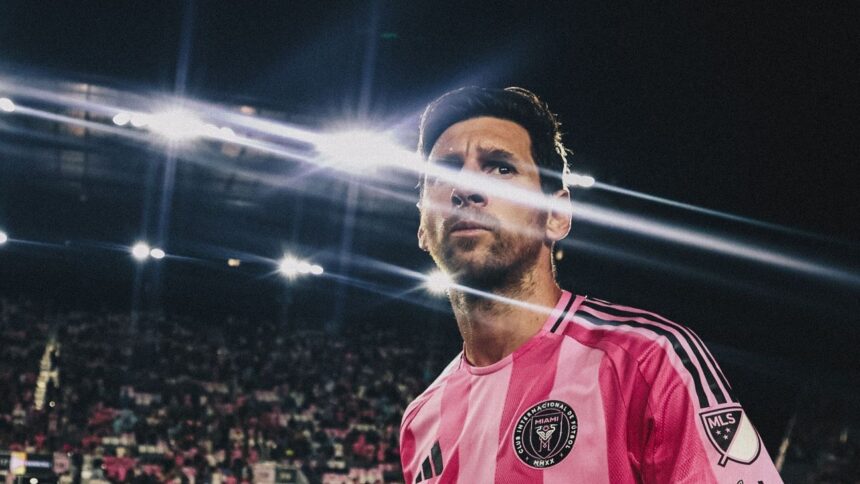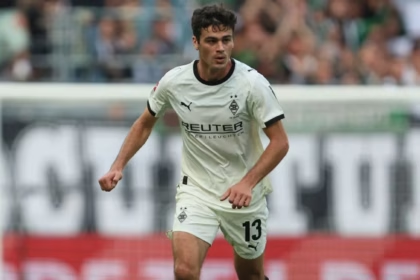Messi’s Strategy and Inter Miami: Pacing for Triumph
During the 2024 Major League Soccer (MLS) season, Inter Miami captain Lionel Messi participated in 55% of the available matches. Despite this limited presence, Messi led the club towards the Supporters’ Shield, set a points record in MLS, and was named the league’s Most Valuable Player (MVP). To achieve this, Messi needed only 19 matches (1,485 minutes) last season, where he scored 20 goals and provided 16 assists. The then-Inter Miami coach, Gerardo “Tata” Martino, quickly understood that he could rest Messi, 37, when necessary and still qualify for the most important phase of the MLS: the postseason. Historically, teams have needed to win only a third of their regular season games to qualify for the playoffs.With an eye on the Club World Cup, Inter Miami has been taking care of its star player for crucial moments. For an MLS team, winning the most matches isn’t the only thing that matters. The key is winning the right matches. The Club World Cup, the Concacaf Champions Cup, and the Leagues Cup are knockout tournaments where Inter Miami secures Messi’s participation. The MLS playoffs also fall into this category. Unlike leagues like LaLiga or Ligue 1, consistent success and the top spot in the standings do not guarantee the title in MLS. The American league’s playoff system qualifies the top seven teams from each conference at the end of the regular season. The new MLS rules allow teams in eighth and ninth place in each conference to compete in a single-game series for the last playoff spot. Each conference has 15 teams, which means that more than half of the MLS teams make the postseason. In the last two seasons, teams with between 40 and 45 points managed to qualify for the playoffs as the last seeds. In 2024, CF Montreal secured the eighth place with only 43 points in 34 games, while Atlanta United narrowly surpassed D.C. United for ninth place with 40 points. As Mascherano points out, the format is flexible, allowing teams to lose several matches without negatively affecting their chances of reaching the playoffs, the first objective for success in MLS. Although Atlanta United was the last team to qualify for the postseason with a record of 10-10-14 (W-D-L) in 2024, they eliminated Miami, leader of the Eastern Conference and winner of the Supporters’ Shield, in the first round. The league encourages teams to finish the regular season in the top positions to secure the home-field advantage and compete for the Supporters’ Shield, but once they qualify for the playoffs, anything can happen. In 2023, Martino chose to rest Messi in less relevant matches, saving him for when he was really needed. In the last ten regular season matches, prior to the playoffs, Messi missed 25% of the available matches, not due to injury, but due to rest. Towards the end of the 2024 MLS season, Martino left Messi out of the starting eleven in the two matches prior to the playoffs. Again, it was not due to injury, but to give him rest, as Miami had already secured their place in the playoffs. Messi played a total of 65 minutes in those two matches, saving energy and maintaining the necessary rhythm for the first-round playoff series against Atlanta United, where he participated in all 270 minutes, but Miami lost.“The MLS season allows you to fail in certain matches, something that doesn’t happen in the knockout phase of a continental league, where elimination is direct,” commented Javier Mascherano, the new coach. “But the Concacaf Champions Cup playoffs prepare you for what’s coming in October with the playoffs. The MLS is a long season that comes down to a continental cup where the knockout phases are the norm, and in them you can’t fail.”
Javier Mascherano
In 2025, the pattern continues. Messi has played 73% of the available minutes with Inter Miami in the MLS this season, compared to 86% of the minutes played in the Concacaf Champions Cup, including added time. He has participated more since mid-May, but this was due to the need to regain his physical form after the elimination in the Concacaf Champions Cup. Inter Miami began the 2025 season combining MLS and the Concacaf Champions Cup, playing a match every three days in international destinations. The team quickly went from preseason to two demanding competitions, forcing the club to modify the training schedule to adapt to the large amount of playing time. Although Mascherano insists that Messi is used to playing under such demands, fatigue and workload management were again a topic of conversation. After qualifying for the Concacaf Champions Cup semifinals for the first time in club history, the team faced a tight schedule: Vancouver in Canada on April 24, FC Dallas at Chase Stadium in Fort Lauderdale on April 26, and finally the CCC return match against the Whitecaps on April 30. The team and Mascherano entered the week with a plan, returning to the strategy seen in 2024, when Miami prioritized international competition and rested Messi completely. The captain played the full 90 minutes of the first leg against Vancouver before getting a rest. Then he missed the pre-match training against Dallas, with Mascherano citing fatigue: “Messi finished the [first leg] [against Vancouver] well. Obviously he was fatigued. Playing on synthetic turf can make a player even more fatigued due to the terrain.” Messi was completely absent from the MLS match against Dallas. Miami lost 4-3 before returning to action by receiving the Whitecaps in the return match. “Obviously we decided, like many of his teammates, to reserve him after the match against Vancouver, where we had to travel for six or seven hours and play on artificial turf,” Mascherano said after the match against Dallas. “But it’s okay; he trained today, so he’s ready [for the return match against Vancouver in the CCC].” Messi also missed three matches in March to prevent fatigue as the final stages of the Concacaf Champions Cup approached. He watched Inter Miami win two MLS regular season matches and the first leg of the Concacaf Champions Cup round of 16 without him.“We decided on Friday to give the players a rest. It made sense after two full games to make some rotations, and we had players ready to play,” Martino stated before the playoffs. “We were able to achieve our two goals. One was to give the players a rest and also to win the match for what it means from a motivational point of view to be in a position to break the points record.”
Gerardo “Tata” Martino
At that moment, Mascherano cited workload management as the reason for resting Messi, explaining that the team aimed to prevent any kind of fatigue as they approached the final stages of the international tournament. “As we want to take care of him and don’t want him to feel fatigued, we decided to give him a rest, knowing the risks we face,” Mascherano told the media on March 6. “Obviously, not having the best player in the world is complicated.”
At 37 years old, Messi has managed to adapt his technique on the field and create a training regimen off it to continue playing at a high level. But as he himself said last year: “Rest is very important nowadays. As we get older, everything is more difficult.” “I know that as soon as I think I can’t perform anymore, or I no longer enjoy the game, or I can’t help my teammates, then I’ll stop,” Messi stated. Rest and absence in the less important MLS matches have been key for Messi to help his teammates when necessary. When the Club World Cup begins, a similar pattern could emerge.










